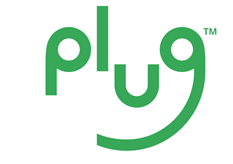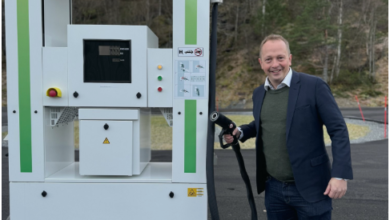Plug to demonstrate the development of advanced hydrogen refueling station in Washington State

Plug Power Inc., a global leader in comprehensive hydrogen solutions for the green hydrogen economy, has been awarded $10 million by the U.S. Department of Energy (DOE) to demonstrate next-generation hydrogen refueling infrastructure for medium and heavy-duty vehicles at scale. Plug’s project, HYPER-Fuel (“the project”), is a liquid-to-gaseous dispensing and cryogenic dispensing hydrogen refueling station architecture.
This funding is part of the DOE’s $62 million investment in 20 projects across 15 states aimed at accelerating the deployment of next-generation clean hydrogen technologies. These initiatives will advance key aspects of hydrogen fueling infrastructure, demonstrate hydrogen-powered container-handling equipment for port operations, and enhance processes critical to the efficient, timely, and equitable implementation of hydrogen technologies.
In partnership with Washington State University (WSU), the University of Maryland at College Park, and the National Renewable Energy Laboratory (NREL), Plug will develop a high-flow, direct-fill hydrogen fueling station. The dispensing station, based on Plug’s GenFuel technology, will offer fueling rates exceeding 8 kg/min, a daily capacity of >2 tonnes, and options for both 350 and 700-bar pressurized hydrogen, including forward-looking subcooled liquid and cryo-compressed hydrogen dispensing. The project aims to address the growing hydrogen infrastructure needs for on-road heavy-duty vehicles.
“We’re grateful for the Department of Energy’s support, which underscores Plug’s leadership in the hydrogen sector,” said Andy Marsh. “With over 250 high-performance refueling stations under our belt—more than any other company globally—our proven expertise positions us uniquely to lead this important commercial demonstration project.”
“This station solves the chicken-or-egg conundrum holding back the hydrogen economy–with integrated cooling we can minimize boil-off losses, easing the barrier to adopting hydrogen fuel for heavy-duty applications,” said Jacob Leachman. “The research and testing opportunities will significantly advance the field. We couldn’t be more excited to partner with Plug again on DOE projects.”
As the primary partner, Plug will oversee engineering, construction, operation, and training. WSU will leverage its advanced cryogenics lab to develop and optimize thermofluid models for the station and will act as the end-use operator. NREL will investigate leakage and sensor technologies, while the University of Maryland will evaluate safety risks and reliability. Engineering will be managed by Plug’s team at its Vista headquarters in Slingerlands, NY, with support from its Cryogenics R&D facility in Colfax, WA.
This project focuses on demonstrating these advanced technologies as commercially viable solutions. Rather than conducting R&D as part of the project, Plug will build a fueling station in Pullman, Washington that is expected to be operational in 2026—and could ultimately fuel WSU and community vehicles. This model of the station could also be replicated in New York and nationwide to meet growing refueling demands and support the broader adoption of hydrogen fuel cell technology.
WSU-Pullman and the Pacific NorthWest an ideal locations for this project as there is significant momentum building around the Pacific Northwest H2 Hub, which Plug is also a partner in, and Washington State’s zero-emission vehicle mandate by 2035, which the university must meet.
Earlier this year, Plug was selected by the DOE for a total of nine awards for Clean Hydrogen Electrolysis, Manufacturing, and Recycling Activities under the Bipartisan Infrastructure Law. These awards highlight Plug’s industry leadership and commitment to developing the green hydrogen economy.
